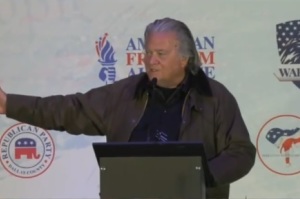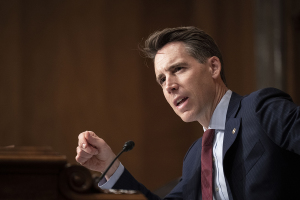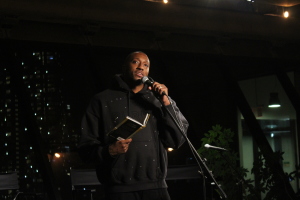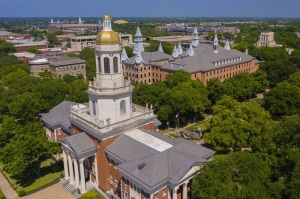Where are William Wallace and Patrick Henry?
Where are William Wallace and Patrick Henry when you need them?
Yes, I know they're dead. My question is, "Where are their kind?" That is, where are the men and women of our day who desire freedom and liberty for all, even if it means personal loss and sacrifice? Where are the patriots who are not bound by party affiliation, political pandering or extremist tendencies, but by the principle and precept that men and women are endowed with certain unalienable rights that are not bestowed on us by a commonwealth or the governed collective, but by our Creator? Where are the Wallaces and the Henrys of our day who desire freedom above all and for all, a freedom that is conditioned by the moral and spiritual principles of individual responsibility and accountability and not an over-reaching "nanny-state" that seeks to arbitrarily impose artificial and unnecessary limits on liberty?
Wallace and Henry, two firebrands of liberty in their generations, were separated by roughly five hundred years, but they had one theme in common: freedom. Wallace (b. 1272 – d. August 23, 1305), who led the charge for a free Scotland, galvanized the Scottish resistance and rebellion against England and King Edward I. He was eventually betrayed by fellow Scotsman, John de Menteith, tried as an insurrectionist, and executed by being "drawn and quartered." His decapitated head was dipped in tar and placed on one of the spires of London Bridge. His story was popularized in the blockbuster movie, Braveheart. To this day, many credit Wallace for igniting Scotland's rabid desire for freedom, that Scottish blood is free blood. There is much about the legend of Wallace that is hyperbole, but one thing all historians agree on is that Wallace wanted a free Scotland and he was willing to pay the ultimate price for that freedom with his own life.
Henry (b. May 29, 1736 – d. June 6, 1799) was a Virginian to the core, a state's rights advocate, and one of the most important founders of America. Henry delivered his now-famous "liberty speech" to the Virginia House of Burgesses on March 23, 1775, in Saint John's Church in Richmond, Virginia. The House was undecided on whether to mobilize for military action against British military forces, and Henry argued in favor of mobilization. Henry ended his speech with these immortal words: "Is life so dear, or peace so sweet, as to be purchased at the price of chains and slavery? Forbid it, Almighty God! I know not what course others may take; but as for me, give me liberty, or give me death!" The crowd is reportedly to have jumped up and shouted, "To Arms! To Arms!" Again, Henry was more anti-Federalist than most and even opposed Jefferson and Madison over several key issues. Nevertheless, revolution for Henry and the other founders was ultimately about freedom.
Freedom is a strange, mercurial thing. Freedom can be easily abused and forfeited by irresponsible attitudes and actions and it can also produce an atmosphere that generates unbelievable human creativity and productivity. Freedom can either become a cauldron of creativity or a cesspool of wasted talent. Freedom can be used for the good or abdicated for security. The best kind of freedom is a freedom individually exercised with moral and spiritual restraint. The best kind of freedom lives with self-imposed limitations and with as few externally-imposed restrictions possible, other than God as the source and arbiter of objective truth. The worst kind of freedom is a freedom that grants an ever-increasing role of personal restraint to the state for lack of personal responsibility. The absence of any moral and spiritual restraint demands an ever-increasing need for an artificial, external restraining authority, i.e. the state. While the state is designed to play a limited role in restraining the lawbreaker (Rom. 13), the state must not become the comprehensive arbiter of all things moral, spiritual, and personal.
There is a danger in "state run" freedom. Ben Franklin cautioned against the "nanny state" when he wrote to the Governor of Pennsylvania (Nov. 11, 1755) the following warning as the Pennsylvania legislature considered various laws to secure the safety of its citizens: "Those who would give up essential Liberty, to purchase a little temporary Safety, deserve neither Liberty nor Safety." Even Thomas Jefferson, a deist at best, an anti-Christian at worst, noted the three following statements about freedom and the state: (1) "I predict future happiness for Americans if they can prevent the government from wasting the labors of the people under the pretense of taking care of them." (2) "That government is best which governs the least, because its people discipline themselves." (3) "When the people fear their government, there is tyranny; when the government fears the people, there is liberty." Powerful words from ancient pens!
It seems that we live in a different world than did Wallace, Henry, Franklin, and Jefferson. There has always been and always will be some level of state regulation and restraint on individual liberty. I give up my freedom to drive 90 mph for the safety of the next driver. I do not have the freedom to yell "Fire!" in a crowded theater. I consent to limit some of my freedoms for the conduct of an orderly society. Yet, it seems in recent decades that we have turned a corner in this great experiment Americans call democracy and freedom. Freedom is not as cherished these days as are our creature comforts, personal security, and ever-expanding rights. The category of "unalienable rights" has expanded from life, liberty, and the pursuit of happiness to include the rights of housing, health care, education, welfare support, etc. Equal opportunity has expanded to include equal outcomes.
In the process of this expansion of "rights," rights that are deemed to be granted by the state and not as a result of personal work and responsibility in response to God-given liberty, we have slowly and continually forfeited true freedom. Let us be clear. Every civil society has made provision for its indigent and poor. America is no exception to this rule. In fact, America, despite her many faults, is without a doubt the most generous nation on the face of the earth. But the expansion of the category of what constitutes a "needy citizenry" stifles both individual liberty and responsibility and expands the mothering, smothering role of the state.
So, where are the William Wallaces and the Patrick Henrys of our day? I'll tell you where they ought to be – in the pulpits and pews of America's churches. I'm not in favor of politicizing the pulpit. I'm not speaking of a new moral majority that is a religiously motivated movement where the preacher and the lay person are obligated to a particular politician or political party. Instead, I'm speaking of a free pulpit bound only to the Word of God and set aflame with the righteousness of God which is able to produce truly free and responsible freedom. I'm speaking of the role of the preacher as the prophet that speaks truth to power, warns the lazy and lethargic, and intercedes for the truly needy – who preaches simultaneously God's holiness and mercy. I'm speaking of preaching and living the gospel which sets men and women free from the tyranny of sin and that enables them to live with moral and spiritual restraint, a restraint that is not abdicated to the state, but is a self-imposed restraint that is obligated to the only wise King. Everywhere the gospel is preached people are set free with moral accountability.
Could it be that the ever-increasing encroachment of the state into our personal and privates lives is commensurate with the church's failure to preach the gospel of Jesus Christ, the gospel that sets sinners free from vice and makes them seek freedom that is bound by conscience and conviction?
In 1840 Alexis de Tocqueville traveled to America from France to observe the secret of this new experiment called democracy. This is what de Tocqueville wrote in his book, Democracy in America, as he observed the greatness of America and warned of abusing freedom and the possible development of a "nanny state:"
After having thus successively taken each member of the community in its powerful grasp and fashioned him at will, the government then extends its arm over the whole community. It covers the surface of society with a network of small, complicated rules, minute and uniform, through which the most original minds and the most energetic characters cannot penetrate, to rise above the crowd. The will of man is not shattered, but softened, bent, and guided; men are seldom forced by it to act, but they are constantly restrained from acting. Such a power does not destroy, but it prevents existence: it does not tyrannize, but it compresses, enervates, extinguishes, and stupefies a people, till each nation is reduced to nothing better than a flock of timid and industrious animals, of which the government is the shepherd.
Freedom, accompanied by moral and spiritual responsibility and duty, will return to America when she regains her moral and spiritual equilibrium. And this will only happen when the gospel of Jesus Christ returns to the pulpits and pews of her churches. Until then, we will continue looking for the kind of men and women like William Wallace and Patrick Henry not to take up arms but to take up the Word of God, setting the pulpits and pews aflame with the truth of God that sets men and women free.



























